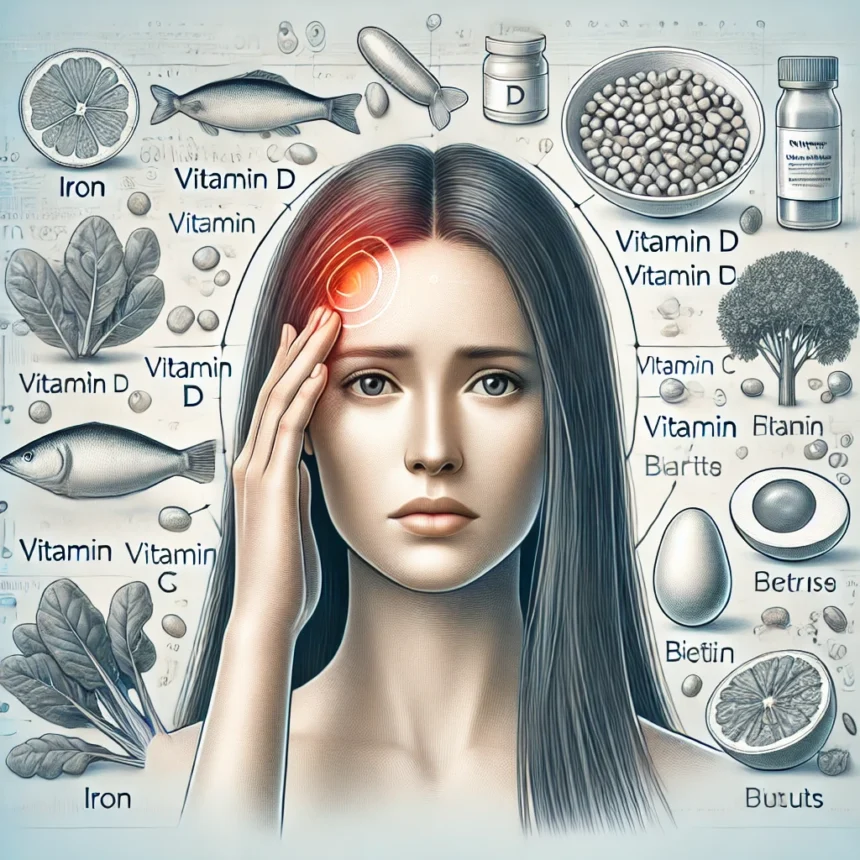Proper nutrition is vital for good health, energy, and illness prevention. However, many people are unaware of vitamin deficiencies caused by poor dietary choices, digestive difficulties, or underlying health disorders. Ignoring these inadequacies can cause long-term health issues. Here are some frequent indicators that your body may be deficient in important nutrients, as well as what you can do to address them.
Fatigue and Weakness → Iron Deficiency
Feeling consistently weary, weak, or dizzy could indicate iron deficiency. Other signs include pale complexion, shortness of breath, and headaches. Iron is required for the production of haemoglobin, the protein that transports oxygen throughout the body. Without enough iron, oxygen supply to tissues is impaired, resulting in weariness. Include iron-rich foods in your diet, such as red meat, chicken, fish, leafy greens like spinach and kale, lentils, and fortified cereals. Combining these foods with vitamin C sources, such as citrus fruits, can improve iron absorption.
Brittle Nails and Hair Loss → Biotin Deficiency
If your hair is thinning or falling out in clumps, and your nails are brittle and break easily, you may be lacking in biotin (Vitamin B7). Biotin promotes keratin formation, which strengthens hair and nails. To avoid this, eat biotin-rich foods like eggs, nuts, seeds, sweet potatoes, and avocados. A well-balanced diet often offers adequate biotin, but supplements may be necessary in severe situations.
Frequent Colds and Slow Healing Wounds → Vitamin C Deficiency
A weaker immune system, frequent colds, sluggish wound healing, bleeding gums, and easy bruising are all classic symptoms of vitamin C insufficiency. Vitamin C is a potent antioxidant that boosts the immune system, aids collagen formation, and promotes wound healing. Citrus fruits such as oranges, lemons, and grapefruits are rich in vitamin C. You can also find it in bell peppers, strawberries, and broccoli. Vitamin C is water-soluble and cannot be stored in the body, thus it must be taken on a daily basis.
MUST READ;Hydration Myths Debunked: What You Really Need to Know About Staying Hydrated –
Bone Pain and Muscle Weakness → Vitamin D Deficiency
Joint and bone discomfort, muscle weakness, and frequent mood changes may suggest a vitamin D deficit. Vitamin D promotes calcium absorption, which strengthens bones and muscles. A lack of it heightens the risk of osteoporosis and muscle weariness. The best approach to receive vitamin D is to spend at least 15 minutes in the sun each day. Dietary sources include fatty fish such as salmon and mackerel, fortified dairy products, and egg yolks. In cases of severe deficiency, a doctor may prescribe supplements.
Night Blindness and Dry Eyes → Vitamin A Deficiency
If you struggle to see in low light or have dry, itchy eyes, you may be deficient in vitamin A. Other symptoms include a higher risk of infection and dry, flaky skin. Vitamin A is essential for eye health and immunological function. To avoid deficiency, consume vitamin A-rich foods such as carrots, sweet potatoes, pumpkins, liver, dairy products, and dark leafy greens. Vitamin A is fat-soluble, therefore eating it with healthy fats enhances absorption.
Numbness and Tingling → Vitamin B12 Deficiency
Numbness or tingling in the hands and feet, memory problems, weariness, dizziness, and balance disorders may indicate a vitamin B12 shortage. This vitamin is essential for nerve function and red blood cell formation. Deficiency is frequent in vegetarians and the elderly. Animal-based foods such as meat, poultry, fish, dairy, and eggs contain adequate amounts of vitamin B12. Vegetarians and vegans may require fortified plant-based milk or supplements to meet their needs.
Muscle Cramps and Irregular Heartbeat → Magnesium Deficiency
Frequent muscle cramps, spasms, irregular heartbeats, elevated blood pressure, anxiety, and difficulties sleeping may suggest magnesium shortage. Magnesium supports muscle and neuron function, as well as heart health. To increase magnesium intake, eat nuts and seeds (such almonds and pumpkin seeds), leafy greens (like spinach and Swiss chard), whole grains (brown rice and quinoa), and bananas.
In conclusion, nutrient deficiencies can have major health repercussions if not corrected. If you experience any of the symptoms listed above, consider changing your diet or consulting a healthcare professional for further advice. A well-balanced diet is essential for maintaining long-term health and vitality!


